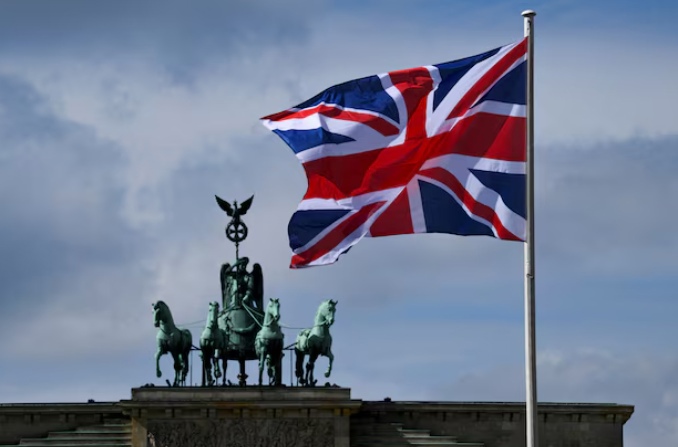Renegotiation of Boris Johnson’s Brexit deal could have a “major positive impact” on the turnaround of the failing British economy, The Independent reports.
The National Institute of Economic and Social Research (NIESR) said that “Brexit uncertainty,” along with the effects of the lockout and the Covid pandemic, has been responsible for lagging growth and productivity in the UK.
Brexit has also contributed to a loss of confidence in the UK as a place to invest.
Sir Keir Starmer has already started the process of renegotiating a “flawed” Brexit deal, with his new European Affairs Minister Nick Thomas-Symonds leading the charge.
While the Brexit renegotiation process has been welcomed, NIESR has questioned the Starmer government’s overall strategy, particularly the cancellation of infrastructure projects that could boost growth, according to The Independent.
In its major report on the state of the economic legacy for a new Labour government and the persistent economic divide between UK regions, NIESR also expressed doubt that Chancellor Rachel Reeves will meet her growth targets.
The study notes that labour productivity in the UK as a whole is barely growing and “things like Brexit uncertainty” have contributed to it actually falling in regions such as the Midlands and the South East.
In addition, the study notes that confidence in the UK has also declined since leaving the EU due to the questionable track record of major infrastructure projects such as High Speed 2, where significant parts of the project were cancelled by the Rishi Sunak government.
Brexit deal renegotiation turns the tide
Stephen Millard, deputy director of macroeconomic modelling and forecasting at NIESR, suggested that Labour’s plans to renegotiate Mr. Johnson’s Brexit deal could help turn the tide.
Responding to a question from The Independent, he said:
If the negotiations go in the direction of making trade easier than what we have now, if the negotiations manage to achieve that, then that would certainly be a positive thing. By opening up trade more that does lead to productivity growth, it also again if we are trading more with the EU it makes us a better more attractive place for direct foreign investment, it makes the UK a more attractive place for business globally because we have those opportunities to trade. That has been the really bad thing about Brexit, is that it has reduced the opportunities of businesses to grow by trade and be more productive.
He also added:
So if there is one thing the government could do that would have a serious impact on growth then trying to bring us closer to Europe would be a definite winner in my view.
But Mr. Millard said he was “concerned” by early signs of Ms. Reeves’ performance at the Treasury after she cancelled rail projects and a new hospital building programme last week in her first statement on the £22 billion black hole in the public finances, The Independent reports.
Instead, the NIESR said public investment in infrastructure building needed to be doubled from 2.5 per cent of GDP to 5 per cent – about £50 billion a year.
It warned that this would mean Ms. Reeves would have to rethink her fiscal rules and exclude public investment from debt settlements because “capital projects take more than five years to pay back.”
Tax hike expected in autumn
The authors also suggested that instead of considering a capital gains tax, Ms. Reeves should tax income or introduce a new land value tax to make up the shortfall. However, Mr. Millard said this would require “either higher taxes or more borrowing or both.”
Ms. Reeves said last week that taxes were likely to be raised in the Autumn Budget after she criticised the state of the public finances left by the previous government.
Ms. Reeves also said Labour would stick to its election promises not to raise National Insurance, income tax or VAT, but left open the possibility of raising other taxes in the 30 October Budget.
However, the NIESR emphasised the importance of public investment in areas such as transport links to boost economic growth.
The think tank said the new government will need to address “low productivity growth trends, make changes to the current tax system and improve living standards.”
Mr. Millard said:
The new government has inherited an economy with low investment and low productivity growth, and it is these issues that need to be tackled. In addition, public spending needs to rise if public services are to be brought up to scratch, the nations and regions of the United Kingdom outside London and the South East are to see the regeneration they need, and the government is to meet the mandated target of achieving net zero by 2050.
NIESR’s latest economic outlook report predicts that output will grow by about 1.2 per cent per annum during the term of the current Parliament, while unemployment is likely to remain at 4.5 per cent.
It also predicts that inflation will rise in the second half of 2024 and early 2025, but will return to the target of around 2 per cent in the medium term.
Adrian Pabst, deputy director for public policy at NIESR, said:
The government’s mission-driven approach and the creation of an Industrial Strategy Council have the potential to overcome barriers to better economic policy-making such as policy and ministerial churn, departmental silos and a lack of coordination across Whitehall. While these are necessary and welcome steps, they are not sufficient to reduce regional and local inequalities substantially. The government needs an overarching strategy to rebuild state capacity, not tinkering at the edges.
